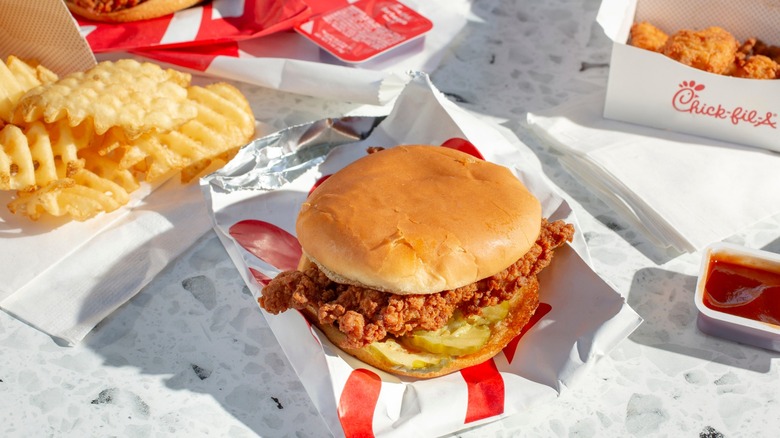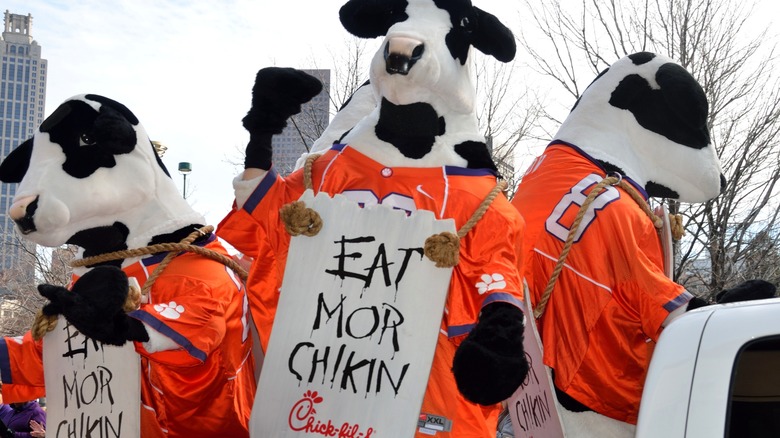Why Chick-Fil-A Restaurants Still Haven't Made It To 2 States
As early 2025 unfolds, Chick-fil-A recently rolled out enticing key lime beverages to help beat the winter blues — but only in 48 states. There are still two states in the U.S. where the restaurant is nowhere to be seen, and there is no indication that will change in the near future. If you reside in Vermont or Alaska, the chicken chain remains as elusive as Chick-fil-A's little blue menu.
The reason Alaska hasn't been graced with a Chick-fil-A comes down to logistics. Because of its harsh climate, there isn't much food grown in America's northernmost region. Sustenance has to be shipped in, and due to the state's isolated location, that is no cheap feat. The costs associated with running a fast food operation in Alaska make it challenging to garner a profit, meaning residents in the Last Frontier shouldn't get their hopes up that the fried chicken enterprise will be setting up shop in their territory anytime soon.
Hawaii is a likewise expensive place to operate a fast food establishment, also due in part to the costs of shipping food. However, Chick-fil-A seems to have found a way to make a profit in the Aloha State, as it opened its first location there in 2022. Vermont stands as the only state other than Alaska not to have one of the restaurants within its borders, and the reason stems from lingering anti-Chick-fil-A sentiment due to a legal battle that has been over for 10 years.
Chick-fil-A left a bad taste in Vermont's mouth
Chick-fil-A has experienced plenty of controversy in the past, and a contentious incident is likely why the Green Mountain State joins Alaska as one of two states that hasn't welcomed the restaurant. In 2011, a folk artist named Bo Muller-Moore from Montpelier, Vermont waged a legal battle against the fried chicken conglomerate over a slogan he had introduced years prior for a local farmer. Muller-Moore made T-shirts and various nicknacks with the phrase "Eat More Kale" emblazoned on the merchandise. Chick-fil-A contended that the phrase was too much like its own trademarked slogan — generally seen on signs held by cows reading "Eat Mor Chikin" — and the business issued a cease-and-desist order against the resident.
With the support of many Vermonters and the governor of the state, Muller-Moore fought the cease-and-desist order in court. In 2014, he emerged victorious, and his supporters touted the win as on par with David triumphing over Goliath. The conflict was heavily publicized, and Chick-fil-A came out of the legal skirmish looking like a corporate behemoth trying to keep the little guy down.
Chick-fil-A felt like the commonwealth had sullied its good name amongst Vermonters. As a result, the business decided it would never have enough local support to open a location in the state. There may come a day when the company figures out the logistics to open a location in Alaska, but regarding Vermont, there may be too much resentment against Chick-fil-A for the chain to find a warm welcome there for years to come.

